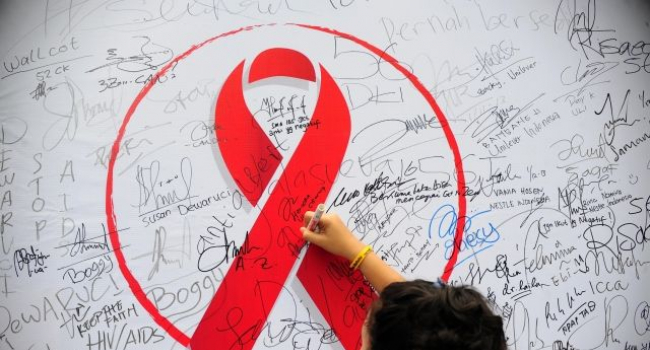Over 50% of Armenian teenagers do not know how HIV is transmitted
 15:55 9 November, 2019
15:55 9 November, 2019Most adolescents aged 15-17 have a course called “Healthy Lifestyle” at school, but they do not have enough knowledge about the transmission routes and ways to prevent sexually transmitted diseases, including HIV. About half of adolescents do not know how HIV is transmitted.
Sergey Sargsyan, Head of Institute of Child and Adolescent Health at Arabkir medical center, told NEWS.am Medicine that the results were obtained during the recent study among school-age children in Armenia. The study is carried out every four years among children aged 10-17, however, only 15 and 17-year-olds are asked questions about sexual life.
According to survey, 27% of 15-year-old boys and 0.8% of girls of the same age admitted that they had already sexual experience. Among 17-year-olds, 43% of boys and 1.2% of girls already had sexual intercourse. Moreover, 25% of boys and 8% of girls who had sex admitted drinking alcohol before the intercourse.
However, 15-17-year-olds have poor knowledge about the methods of contraception. Only 69% of boys and 26% of girls used a condom when having sex. This is noticeably less than in the polls conducted in 2009-2010 and 2013-2014.
With regard to knowledge about HIV transmission, adolescents were asked six questions, and only 17% of 15-year-olds and 13% of 17-year-olds correctly answered all of them. The authors of the study find this alarming.
Only 37% of 15-year-olds and 53% of 17-year-olds know that proper use of condom reduces the risk of HIV infection. 41% of 15-year-olds know that a person can look healthy and have HIV infection. Thirty-eight percent know that HIV is not transmitted through handshakes. However, 19% of 15-year-olds and 18% of 17-year-olds think that it is possible to get infected during a joint meal.
41-50% of adolescents answered “I do not know” to questions about HIV transmission routes.
As compared to 2013-2014, more children attended the “Healthy Lifestyle” course (about 85% of the respondents), but they have less knowledge than the children interviewed in previous studies.
According to the authors, this indicates that these critical topics may be misrepresented at school, and this issue needs to be reviewed.